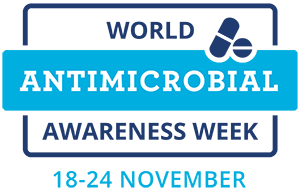The development of resistance is natural and normal due to the adaptability of bacteria. But the consequences can be serious. Antimicrobial resistance (AMR) has been called a silent pandemic because it spreads slowly in the shadow of other infections and crises around the world. No new antibiotics have been launched in over 30 years. Since then, global antibiotic use has increased for humans, animals, plants, and crops. Therefore, it is important to innovate in the field and find new antibiotics. It is precisely the lack of innovation in the field that has led to the development of resistance in bacteria, which has thus benefited from years of excessive and misguided use.
Vital knowledge in the field of AMR research
Research in AMR is largely based on subject areas that are strong at SLU. To draw attention to World Antimicrobial Awareness Week (WAAW) 2023 and the initial European Antibiotic Day, we have collected comments from researchers who contribute knowledge in the field. Links are also available for further information on what the research area means for antimicrobial resistance.
Our vital water
Water is vital for organisms, and at SLU over 400 researchers and experts work with different perspectives on water issues. Some of them focus on antimicrobial resistance in aquatic environments to study how it changes and evolves in the environment.
- When it comes to antimicrobial resistance, the One health perspective - human, animal, and environmental welfare and health - is imperative. Unfortunately, the environmental compartment has been overlooked so far in AMR-research. That is why research regarding AMR in wastewater and aquatic environments is so important, and if we can gain more knowledge in this field, much is gained, says Foon Yin Lai, associate senior lecturer at the Department of Aquatic Sciences and Assessment.
It is hoped that this understanding will form the basis for developing processes to prevent further spread.
Young researchers contribute to AMR research from a wide range of fields
To get a taste of the full range of important and interesting research being conducted at SLU by our young researchers, we got in touch with some of our PhD students - meet Valeriia, Todd, Paul, Olivia, Laingshun and Faruk.
Unlocking the genetic secrets of Salmonella in Cambodian food: A global health puzzle

"Salmonella poses a serious global health threat. In Cambodia, it's linked to severe gastrointestinal illness, especially in children. The rise of antibiotic resistance in Salmonella in the last years amplifies this danger. Our project investigates the geographic origins of Salmonella and its impact on antimicrobial resistance. Our findings will expand our knowledge of Salmonella in Cambodia, revealing its source and resistance genes."
More about Laingshun and her research.
Antibiotics in the aquatic environment

"As a part of my research, I investigate the fate of antibiotics in the aquatic environment. Antibiotics can degrade over time and alter their chemical composition. We are particularly interested in studying the effects of these altered molecules on aquatic organisms like algae and fish. Furthermore, we want to know if these sometimes very similar molecules still are active as antibiotics," says Paul Löffler who is a PhD student at the Department of Aquatic Sciences and Assessment.
More about Paul and his research.
Also meet Olivia, Todd, Valeriia and Faruk who is doing research on:
- Urban livestock production systems in low- and middle-income countries.
- Prevention of infections at animal hospitals.
- Risk factors and their impact on antimicrobial resistance within pig farms.
- Parasitic worms pose significant health and economic burdens.
Read the full article here.
Link to the global sustainability goals
Several of the global goals in Agenda 2030 are in focus in the fight against resistant bacteria; No hunger, Good health and well-being, Clean water and sanitation for all, and Sustainable consumption and production. Decades of systematic and preventive work have made Sweden a pioneer in low antibiotic use. The so-called Swedish model is about keeping farm animals healthy and only using antibiotics when really needed.
"Rules and regulations are important, but not enough to ensure that antibiotics are used responsibly in animal husbandry. Especially in low- and middle-income countries where we work, more positive incentives are needed for the individual farmer. Increased knowledge about responsible antibiotic use among farmers and veterinarians is also needed, says Kristina Osbjer and Ulf Magnusson, researchers at SLU. Strong political will, economic investments, and cooperation across sectors and borders are needed to address this threat. Primarily, it is about limiting the spread of infections and changing how we use drugs."
SLU and Sweden contribute to tackling microbial resistance globally through collaborations with partners in different parts of the world. SLU Global contributes to global development through agricultural sciences. One of the six focus areas is global health. Watch the video where PhD student Sandra Nohrborg and professor Ulf Magnusson talk about livestock production, how to tackle AMR in low- and middle-income countries, and how SLU contributes to this health challenge.


